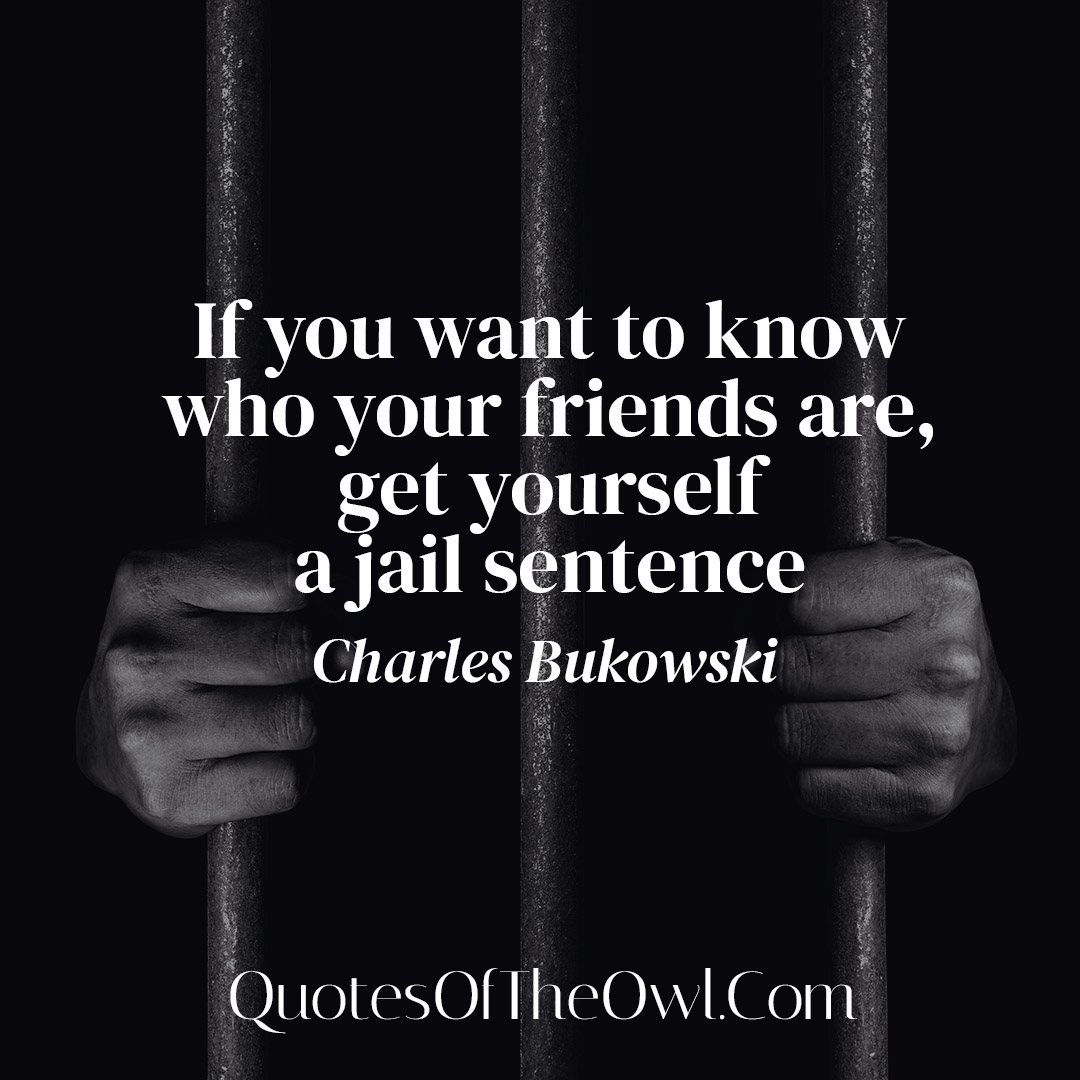What is the meaning of Charles Bukowski’s Quote: “If you want to know who your friends are, get yourself a jail sentence”?
Charles Bukowski is a renowned writer, poet, and novelist known for his frank and straightforward approach to life’s challenges. He often wrote about his personal experiences and his views on society, which made his works both controversial and insightful. One of his most famous quotes is “If you want to know who your friends are, get yourself a jail sentence.” In this article, we will explore the meaning of this quote and what it reveals about friendship, loyalty, and the value of hardships.
The Interpretation of the Quote
Charles Bukowski’s life experiences heavily influenced his writing, particularly his views on society and human relationships. Bukowski himself had a difficult upbringing and lived through various hardships, including poverty, alcoholism, and jail time. He often wrote about these experiences, and his work was marked by a raw, unfiltered tone that resonated with many readers.
The quote, “If you want to know who your friends are, get yourself a jail sentence,” speaks to the idea that true friends reveal themselves in times of hardship. Bukowski suggests that when one is in trouble and needs help, it is only then that their true friends will show up. The significance of the jail sentence in this quote is not necessarily the fact that one needs to be imprisoned to discover who their real friends are, but rather that hardships and struggles reveal people’s true character.
Friendship and Loyalty
Friendship is a fundamental aspect of human relationships, and it is defined as a close relationship between two or more people that involves mutual trust, support, and affection. True friendship is characterized by loyalty, which is the willingness to stand by someone through thick and thin, even when it is not easy or convenient.
Bukowski’s quote suggests that it is only in times of trouble that one can truly test the loyalty of their friends. When someone is in jail or facing other hardships, only those who truly care about them will show up and offer their support. Thus, Bukowski implies that one can only discover who their true friends are by going through tough times.
The Value of Hardships
Hardships and struggles are a natural part of life, and they can either break us or make us stronger. Bukowski believed that adversity was an essential part of the human experience and that it was through facing challenges that we could grow and learn.
In the context of friendships, hardships can reveal the true character of both ourselves and our friends. When faced with challenges, we see who is willing to stand by us and who is not. Those who are loyal and supportive in times of trouble are the ones worth keeping in our lives. On the other hand, those who are not, may reveal themselves to be fair-weather friends.
Conclusion
In conclusion, Bukowski’s quote “If you want to know who your friends are, get yourself a jail sentence” highlights the importance of going through hardships to discover who our true friends are. Through facing challenges, we learn to appreciate the loyalty of those who stand by us through thick and thin. However, it is not necessary to experience hardship to develop strong and lasting friendships. True friendship can be built on trust, shared values, and mutual respect, and it can withstand the test of time. In the end, it is the people who are there for us during our toughest times who truly matter, and they are the ones we should cherish and hold close.

